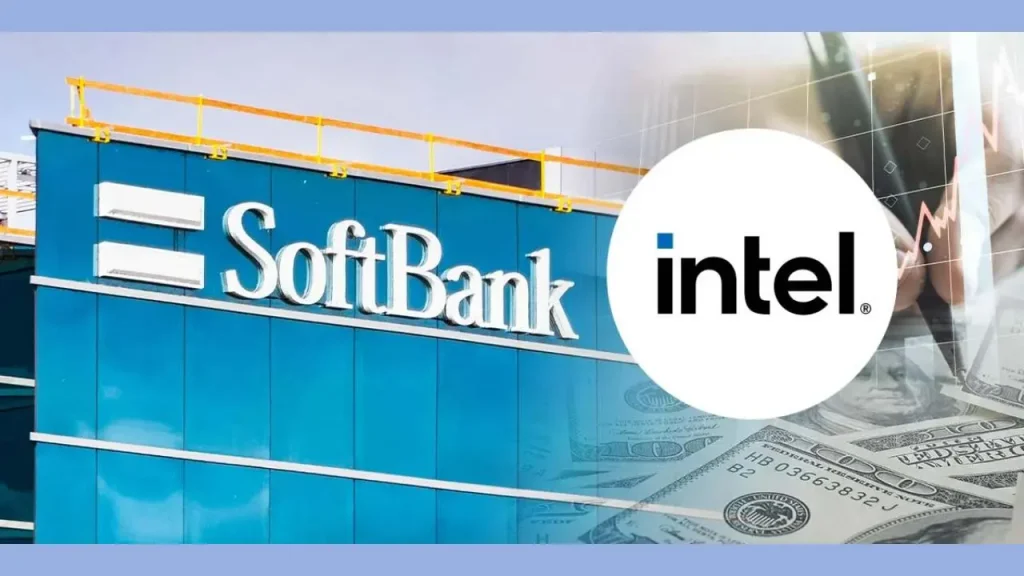- SoftBank commits $2 billion to Intel at $23 per share, becoming one of its top-10 shareholders.
- Reports suggest the US government may take up to a 10% stake via CHIPS Act grant conversion, underscoring national strategic priorities.
What happened: SoftBank invests $2 billion in Intel as US government eyes 10% stake
SoftBank has agreed to invest $2 billion in Intel, acquiring nearly 87 million shares at $23 each. The move makes SoftBank one of Intel’s top-10 shareholders and signals fresh capital support at a time when the US chipmaker is seeking to regain momentum. Intel will issue new common stock, further strengthening its balance sheet as it pursues competitiveness in manufacturing and AI chips under the leadership of CEO Lip-Bu Tan.
Alongside this, the Trump administration is considering its own investment in Intel. Reports suggest Washington could convert part of the CHIPS Act subsidies into equity, giving the government a stake of around 10% without voting rights. US officials, including Commerce Secretary Howard Lutnick and Treasury Secretary Scott Bessent, argue this would secure taxpayer benefit from semiconductor funding and reinforce domestic production priorities.
Also read: SoftBank acquires Ampere for $6.5B
Also read: SoftBank showcases AI RAN innovations at MWC
Why it’s important
SoftBank’s stake signals external confidence in Intel’s prospects and comes at a critical time for the company. Its market position has been pressured by rivals such as Nvidia and AMD, both of which have capitalised on the global surge in demand for AI accelerators. Masayoshi Son’s investment also aligns with his broader ambitions to dominate AI infrastructure through projects such as the Stargate joint venture, which promises massive US data centre expansion.
The potential US government stake adds a political layer to Intel’s revival. By converting subsidies into equity, Washington is shifting towards a more interventionist industrial policy that echoes earlier government involvement in critical sectors. While this could stabilise Intel’s long-term strategy, it risks politicising the company’s governance. Ultimately, the success of both the SoftBank and government stakes will depend on Intel’s ability to deliver manufacturing improvements and close the gap with its most formidable competitors.

